Alright – so today we’ve got the honor of introducing you to Emily Paul. We think you’ll enjoy our conversation, we’ve shared it below.
Hi Emily, thanks for joining us today. We’d love to have you retell us the story behind how you came up with the idea for your business, I think our audience would really enjoy hearing the backstory.
In 2016, my husband Harry and I, along with our sons, had recently moved back to my hometown from Anchorage, Alaska. I had been teaching college English and my husband had been working as an executive chef at Orso, a fancy restaurant in Anchorage; and when we moved back, I had secured a few adjunct teaching positions and he quickly found a chef position at a popular brew pub/pizzeria. I had hoped the move would allow me to change career paths to an adjacent field, but I was just happy to have found a job at all. And it was during this first semester that fate sort of landed in our laps. A family friend of mine had been working on a fundraising idea for Unity Lutheran in East St. Louis, the school he had taught at for several years. He had hosted the first event, called the When I’m 64 Beatles Festival, the year prior and was looking to do it again. We are all huge Beatles fans, so the idea was to get seven bands together to play all Beatles, all day while we sought donations for the school’s scholarship fund through donations, 50/50 raffles, auctions, etcs. I had regretted not being able to help out the year before, so when I found out he was putting on the event for a second year, I quickly contacted him and asked how I could help. “I can serve food or beer, even just take out the trash. I do love baking, too, if there’s a place for that!” I told him. In the end, we decided to include an old-fashioned cake walk in the fundraising mix, for which I would supply the cakes. For fun, we’d call the operation “Blackbird Bakery” after Paul McCartney’s famous song. I ended up supplying the cakes as well as selling lots of cookies and other baked goods, raising several hundreds of additional dollars to support the cause.
That evening, my husband and I were on Cloud 9. How much fun it was and how great of a response we got from the festival goers incited in us the idea that maybe we could develop Blackbird Bakery into something more. I had always loved baking. In fact, I had met my husband while we were both working in a diner in Iowa City, me as a baker and he as a line cook. I also spent many afternoons using baking as a means to put off grading research papers. So after that night, we decided to see what we could do with Blackbird Bakery, and we started by contacting our local farmer’s market to see if there was a space available for a bakery stand during the final weeks of the season. There was.
We immediately got set up with a space and closed out that first season selling mostly cupcakes and cookies. We sold out every week, and the positive response we were getting made it easy for us to commit to the next full season. So during that winter, as I continued adjuncting and Harry was busy helping to open a third location for the restaurant he was managing, I practiced expanding my farmer’s market bakery menu to include artisan breads, croissants, muffins, scones, and sweets. I also started social media pages for Blackbird, which I credit with our immediate increased traffic at the farmer’s market starting that May. I was shocked to see lines stacking up outside my tent on those Saturday mornings. Our small town was lucky to have a farmer’s market, with a handful of avid gardeners trying to get rid of their surplus of tomatoes and zucchinis.
It wasn’t anything like a farmer’s market you’d see in a city or college town. So to see customers lining up to get their hands on a loaf of my bread and pastries, made with real ingredients, I knew we could push this idea even further. I didn’t realize it at that moment, but that spring semester would be my last as a college English instructor.
Throughout the next two years, we continued our bakery stand at the farmer’s market and became more serious about opening a brick and mortar bakery. Especially Harry knew the risk involved in opening a restaurant–some sources cite a 90% failure rate. But we knew our small town craved a place to get a good coffee and pastry without having to drive 20 miles just to do it. Harry was also getting burned out being away from home so much and working upwards to 80 hours a week. We felt the momentum we were building and knew if we were going to open our own storefront, now was the time to do it. We found a location and worked with the owner to outfit this old VFW hall into a bakery and cafe, installing secondhand ovens, prep tables, sinks, shelving, and all the things necessary to make it into a functional kitchen. We also built custom countertops, walls, and bench seating, using slats from area barnwood and filled it out with indoor plants to give the dining area a natural ambiance. A local woodworker also made us custom tables and shelves, which are my favorite details in the building.
We also had been studying up on other area bakeries, some long gone, some still in business, to understand how they made things work. We knew we could take on a strictly bakery approach and enhance sales through cake and cookie decorating and wholesale sales to other restaurants and cafes, or we could expand our idea to include lunch fare. With Harry’s experience, we figured it would be best to include lunch in our offerings, although we did also take cake and cookie orders to start. This original business plan has taken some twists and turns since first opening our doors in June 2019 (June 18, 2019 specifically–unknown to us at the time, but this is also Paul McCartney’s birthday). The COVID-19 pandemic caused us to open lunch sales to online, which has been a real boon to us. Initially, the bakery menu was the draw, but as the years have gone by, lunch has become our greatest revenue stream. We also had to drop cake and cookie decorating from our offerings, truthfully because it was a huge nightmare with the amount of space and time it required, so it was difficult to make it worthwhile in the first place. But with the pandemic leading to fewer gatherings, it was easy to cut it out. We’ve tested out other revenue streams, including upping our coffee game by including a full espresso menu, offering alcohol, renting the space as an event space, offering our walls as gallery space for local artists and hosting gallery opening events for the public, hosting special classes and events like our annual Princess Tea Party in which we invite two Disney princesses from a local princess performance company to interact with children while we all enjoy tea, lemonade, and dainty treats. Some of these ideas have worked and others we’ve had to cut. Through all of that, we’ve learned that what makes our business work, and probably most businesses work, is to find the critical goods and/or services that you do well and that make you the most money, and make those the priority. Spreading ourselves thin across many different revenue stream ideas just brought us more stress, less energy to devote to the things we do well, and frankly, less money in the long run.
Every September, we return to the Prairietown Firefighter’s Park with our bakery tent, ready to dole out cakes to the lucky winners of the When I’m 64 Cake Walk. It is my favorite day of the year, and always a good reminder of where we started, where we’re going, and how tapping into our intuition can lead us to exactly where we’re meant to be.
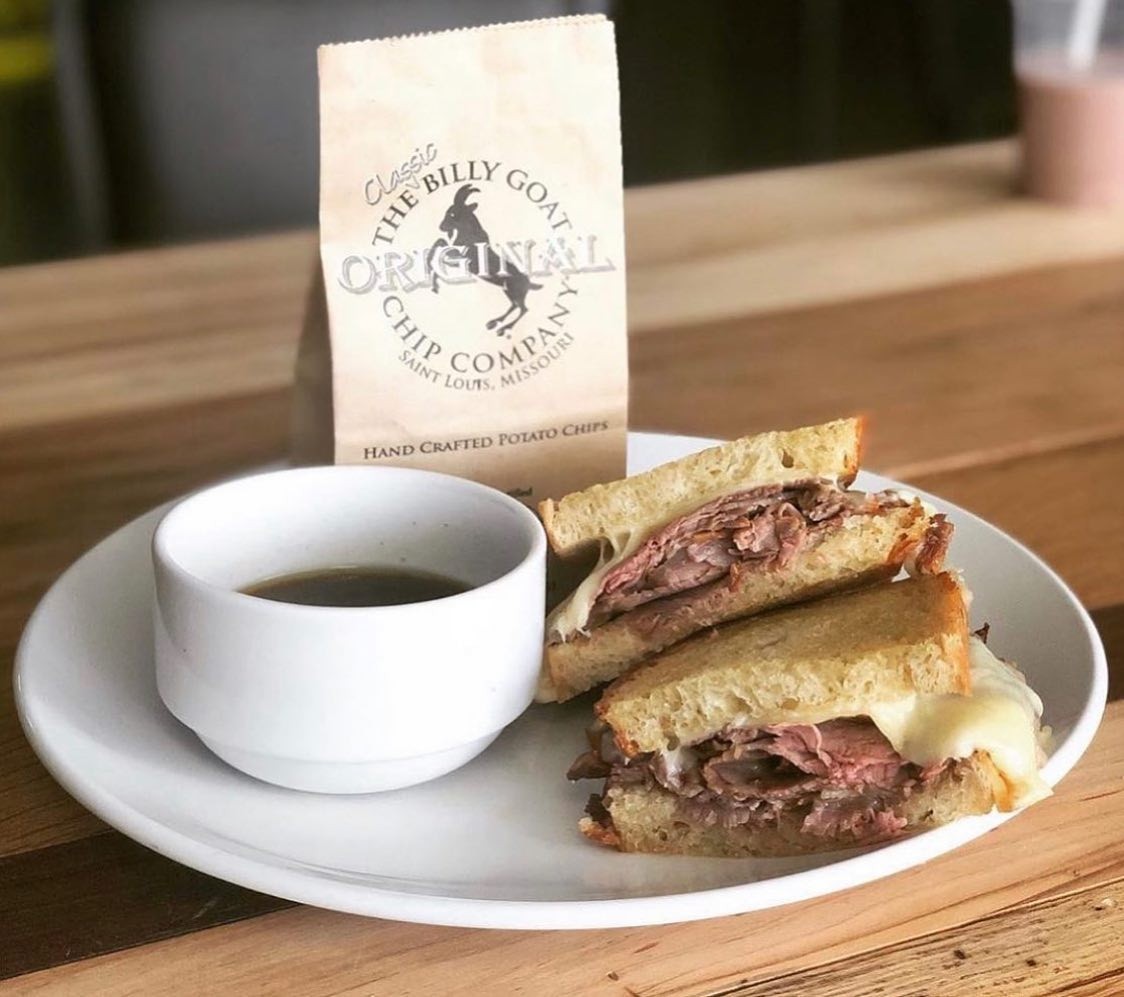
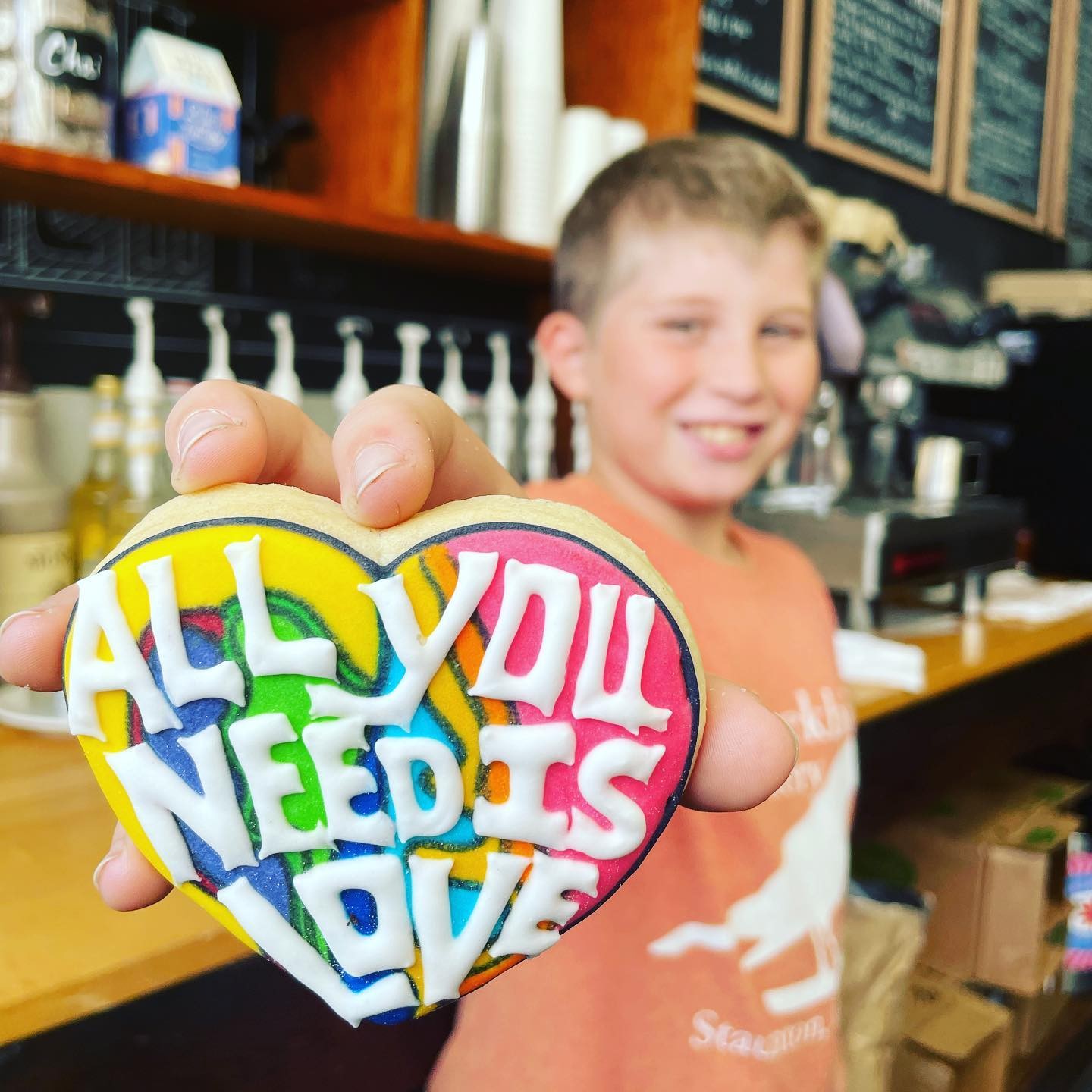
As always, we appreciate you sharing your insights and we’ve got a few more questions for you, but before we get to all of that can you take a minute to introduce yourself and give our readers some of your back background and context?
Harry has been in the restaurant industry since he was a teenager, starting out as a busser and working his way up to Sous Chef at The Glacier Brewhouse (Anchorage, AK), Executive Chef at Orso (Anchorage, AK), and Kitchen Manager at Peel Woodfired Pizza (Edwardsville, IL). Emily had experience working in restaurants as a waitress, cook, and baker, but professionally worked as a college English Instructor.
Our bakery and cafe offers artisan baked goods and lunch items made completely from scratch, including croissants, pate feuilletee, pate choux, artisan breads, sandwiches and salads made with freshly sliced meats and cheeses and fresh vegetables, scratch sauces, soups. We also offer an extensive coffee and espresso menu, using locally roasted beans from Goshen Coffee Co.
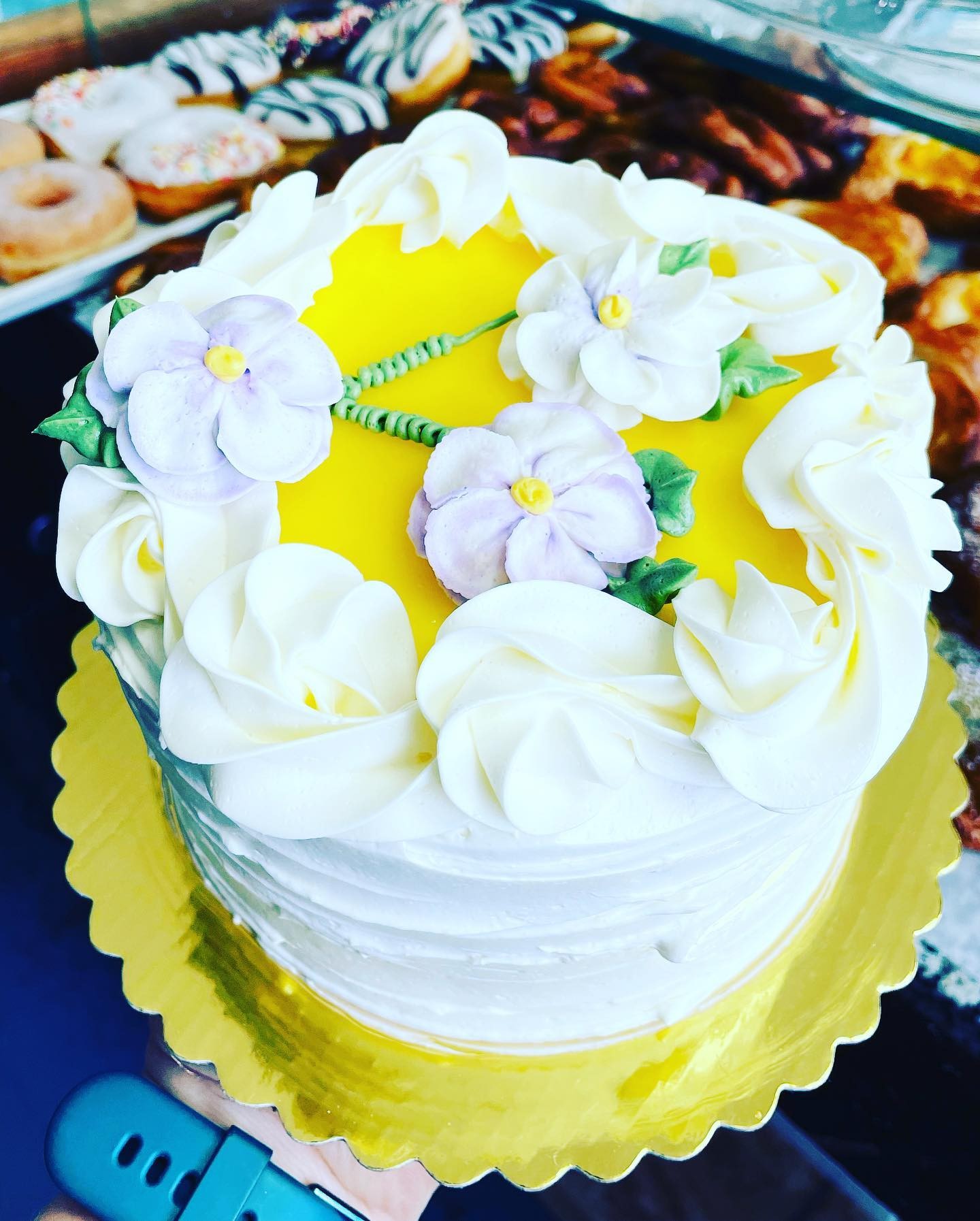
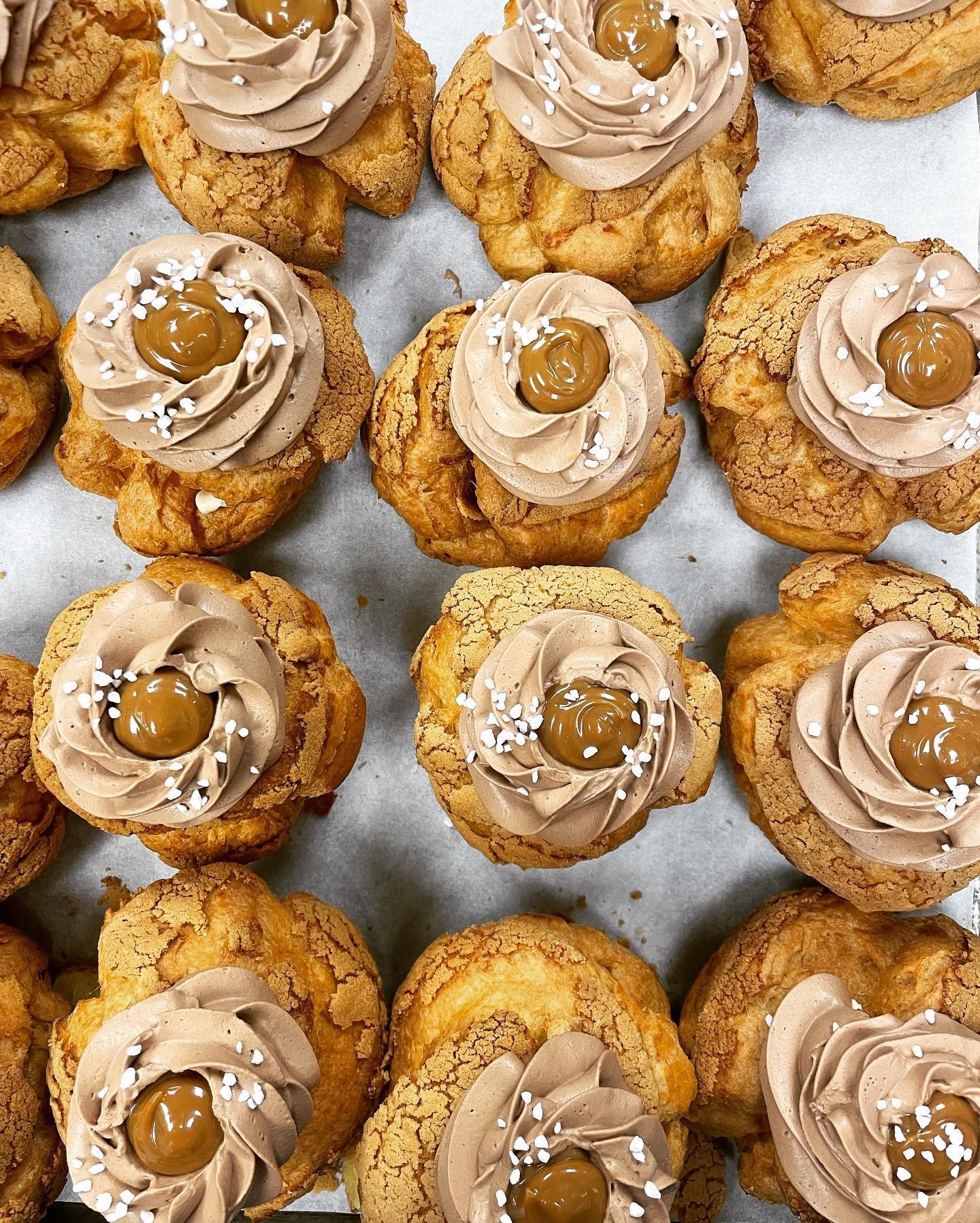
Any advice for managing a team?
We’ve definitely made mistakes in managing a team and maintaining high morale, as coaching employees and compensating them while taking care of your own self can be complex. But one thing we have known and haven’t compromised on is that when it comes down to it, if you offer good wages, avoid micromanaging, and allow people to have ownership over their work, they are going to work hard for you and for the most part, enjoy their work. Paying low wages leads to turnover, and turnover is expensive. We are so involved in the day-to-day operations of our business that it’s hard for us to find time to schedule and hold interviews not to mention train new employees. It is much more cost effective to simply find good people and pay them a good wage. Of course, in a restaurant we have turnover. It’s a stressful, physically intense job. But in a time when businesses are cutting hours because they can’t find employees and crying out “no one wants to work anymore!” Our view is that people do want to work, they want to be productive; but they also want to be fairly compensated for their labor. We’re a small business, and we wish we could always pay more, but we do as much as we can to provide livable wages for those in an industry whose labor value is often underappreciated.
On this same note, we just do not have time to micromanage. We need competent staff who can be trusted to do the job. Of course we’re there to teach and step in when someone ends up in the weeds. I think, too, that just the type of business we have provides lots of opportunities for learning, something that keeps our employees interested. It is difficult to make a good croissant or millefeuille. Giving employees the opportunity to learn and expand their culinary talents is a natural way to keep them invested–they know the tasks they practice on a daily basis give them more hiring potential should they decide to move on.
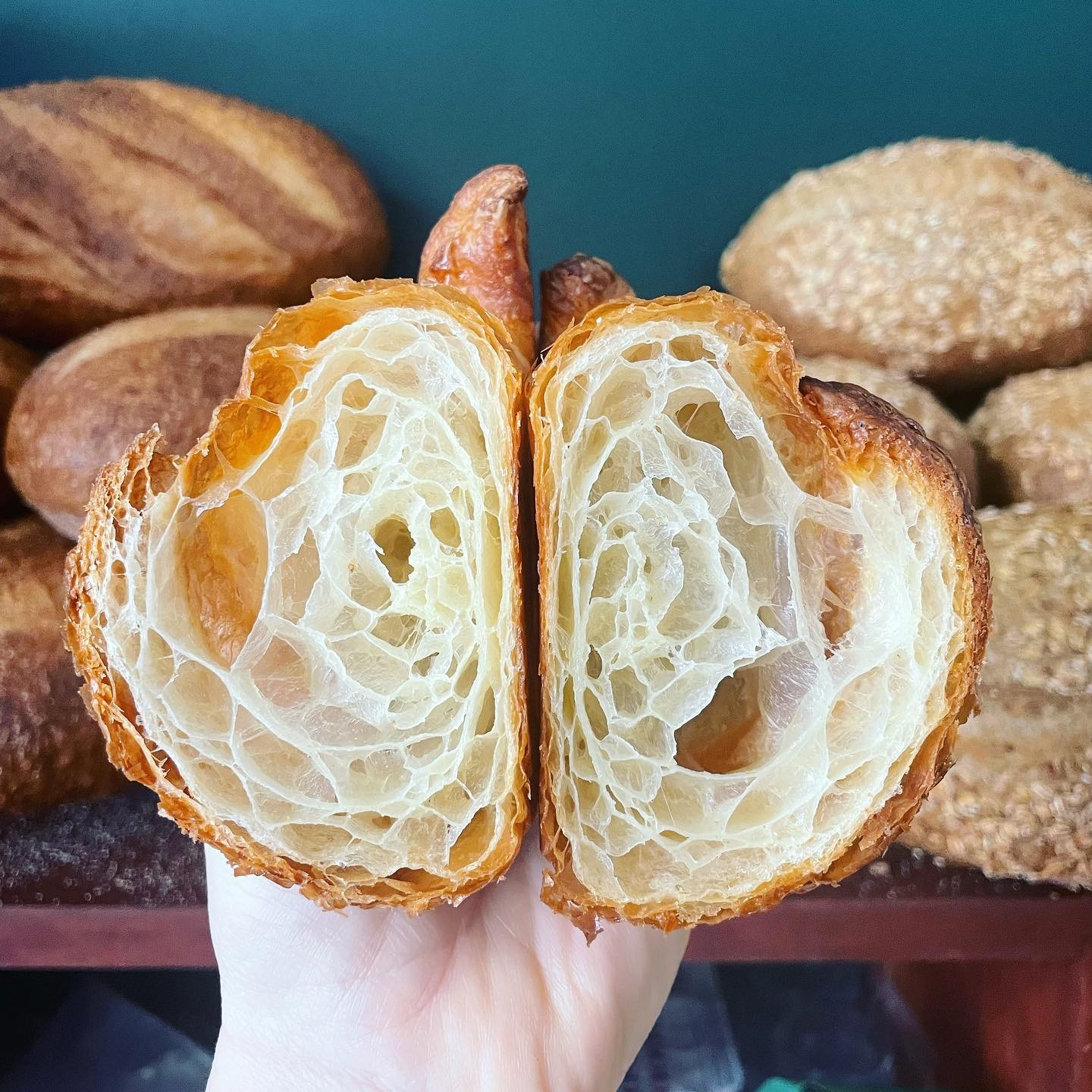

Any advice for growing your clientele? What’s been most effective for you?
Growing our clientele has been challenging, simply because of our location. Staunton is a small, rural community with a population of about 5500. The town rests about 2 miles from the interstate and Route 66 slices right by the outside of town. It is very easy for travelers to not realize we are there. We have to expand our reach in various ways in order to make our business profitable. I know social media has a lot of downsides. But it has been absolutely integral to our success. We can even see it in real time. Any time I post a picture of some specialty dessert, the phone starts ringing with customers asking us to set one aside so they can make sure they get one. Our large presence on social media also gives travelers the opportunity to judge whether or not they want to drive the 2 miles into town to check us out. Thankfully, we also have a few gen-zers on staff who are helping us millenial owners figure out how to most effectively use Tik-Tok to get more views as well.
We also seek out more traditional forms of advertising in print media. We often take out ad space in the local newspaper, as much of our clientele are not in the age group of social media users.
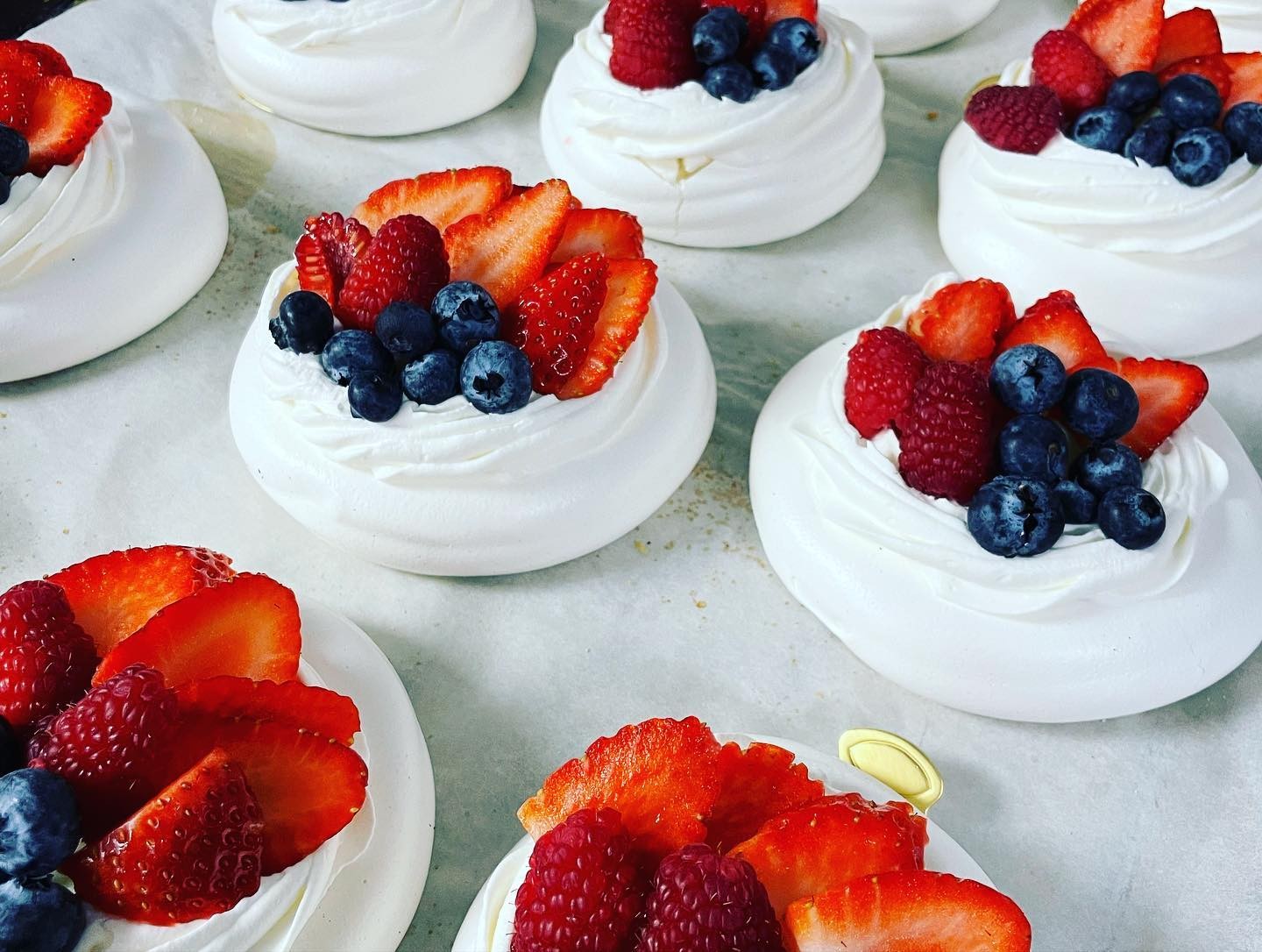
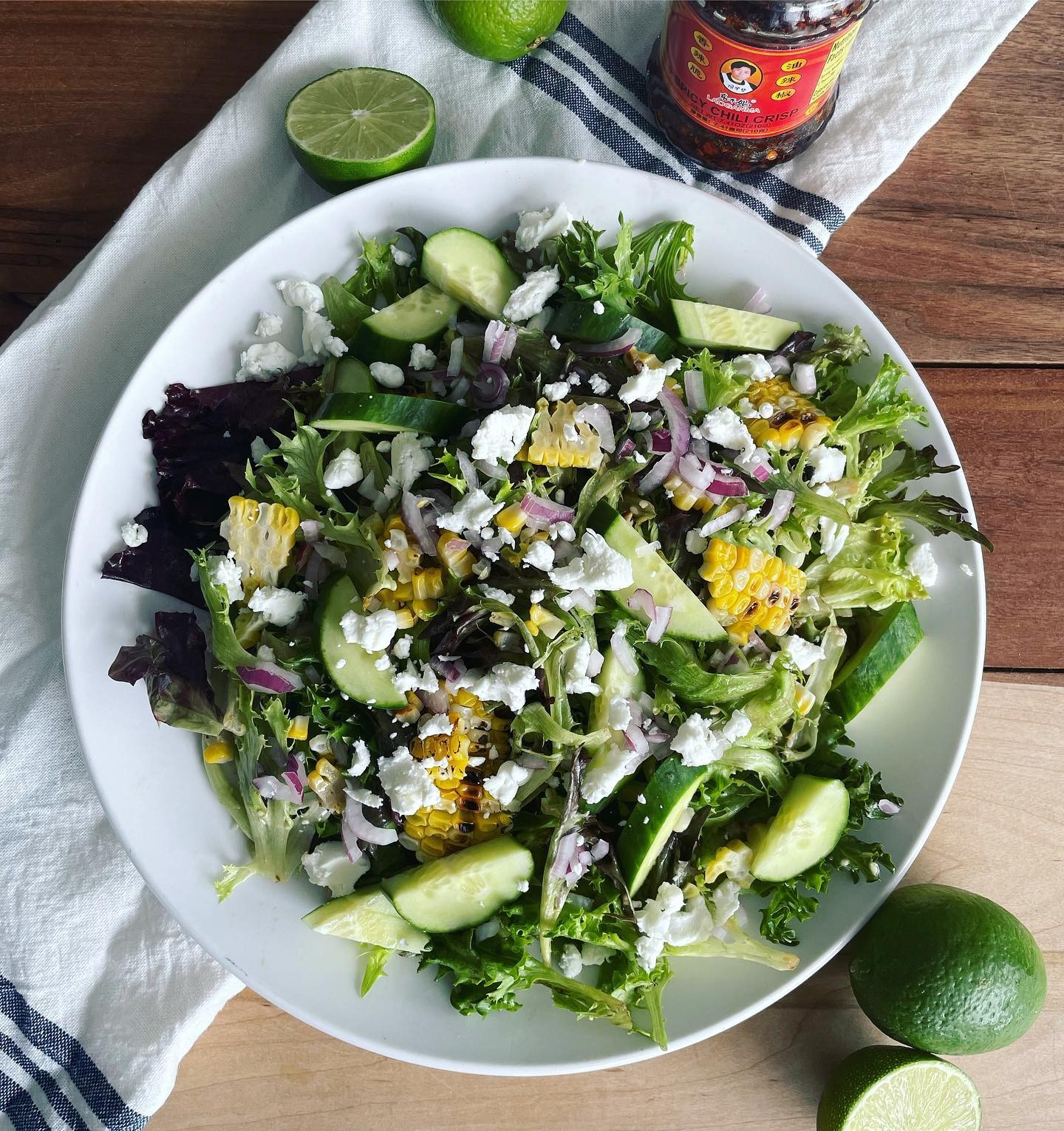
Contact Info:
- Website: blackbirdbakeryandcafe.com
- Instagram: @blackbirdbakeryil
- Facebook: Blackbird Bakery + Cafe
Image Credits
First family photo: Chi Pelo of Sugar Petunia Photography


